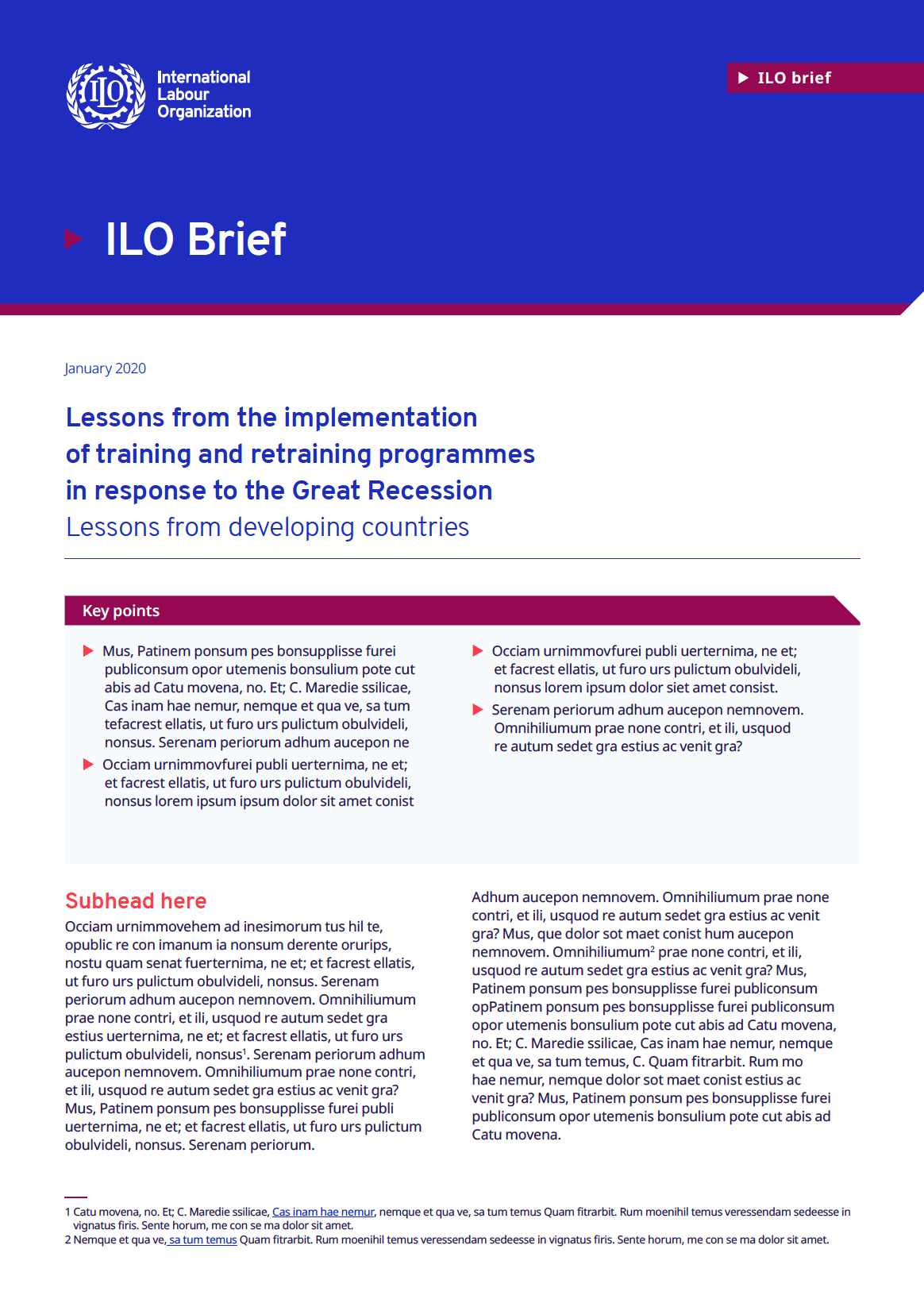The regulation of internships: A comparative study
In 2012, the International Labour Conference issued a resolution with a call for action to tackle the unprecedented youth employment crisis through a set of policy measures. The resolution provides guiding principles and a package of inter-related policies for countries wanting to take immediate and targeted action to address the crisis of youth labour markets. This paper, is part of follow-up action on knowledge building co-ordinated by the ILO’s Youth Employment Programme (YEP).
Together with apprenticeships and temporary jobs, internships (or traineeships as they are often called in Europe) have become an important part of the transition from education to employment, especially in higher-income countries. Concerns have been expressed in recent years about the role of internships in serving as an effective bridge between education and (paid) work. Against that background, and in particular the ILO’s commitment to promote decent work for young people, the objectives of this paper are:
• to explain the different forms that internships may take;
• to discuss the extent to which different institutional arrangements and design features of internships are conducive to the integration of young people into longer term stable employment;
• to provide a comparative overview of the regulation of internships in selected countries; and
• to discuss the appropriateness and effectiveness of particular regulatory strategies.




